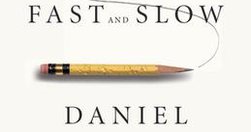Overview: Content Strategy
Are you creating the content your audience actually wants to consume, or are you just talking about yourself?
What sort of content will your audience read, out of the endless supply at their fingertips? Formal news articles or blog posts from your staff and readers? An event calendar updated daily, or a longread every month? Static web pages, or a deeply granular database with faceted search?
And have you figured out how to get it to them, develop engagement around it, and translate that success into something concrete, fulfilling your mission? How many of the friends and organisations in your network amplify your message regularly?
Need answers? Get in touch.
More services: start with Communication strategy.
Relevant resources
concern that social media sites contribute to political polarization by creating ``echo chambers" that insulate people from opposing views ... We find that Republicans who followed a liberal Twitter bot became substantially more conservative post-treatment, and Democrats who followed a conservative Twitter bot became slightly more liberal post-tre…

If reason is designed to generate sound judgments, then it’s hard to conceive of a more serious design flaw than confirmation bias... a trait that should have been selected against. ... it must have some adaptive function... related to our “hypersociability.” ... Living in small bands of hunter-gatherers, our ancestors were primarily concerned wit…

There’s large-scale, statistically significant research into the impact of search results on political views... Google is doing a horrible, horrible job of delivering answers here. It can and should do better... people are finally saying, ‘Gee, Facebook and Google really have a lot of power’ like it’s this big revelation. And it’s like, ‘D’oh.’”…

Thinking, Fast and Slow is a best-selling[1] 2011 book by Nobel Memorial Prize in Economics winner Daniel Kahnema...: his early days working on cognitive biases, his work on prospect theory, and his later work on happiness.The book's central thesis is a dichotomy between two modes of thought: "System 1" is fast, instinctive and emotional; "System …
not much drives traffic as effectively as stories that vindicate and/or inflame the biases of their readers... specifically tries to invent stories that will provoke strong reactions in middle-aged conservatives. They share a lot on Facebook... they’re the ideal audience. institutional distrust and cognitive bias are so strong that the people who…